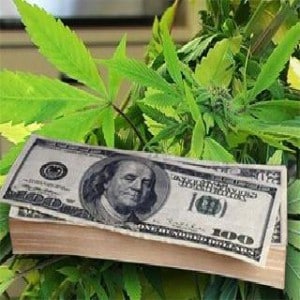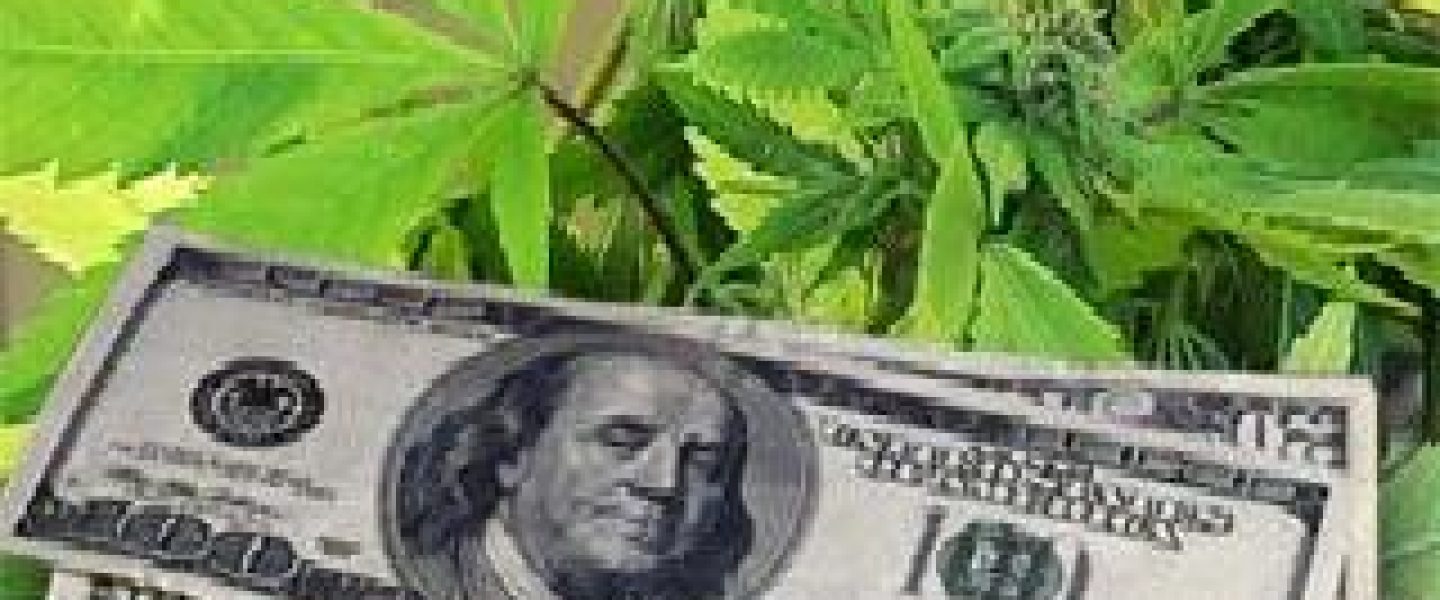 Oakland Medical Marijuana Dispensaries Make A Lot Of Money
Oakland Medical Marijuana Dispensaries Make A Lot Of Money
The economy is still tanking, but Oakland’s medical pot industry is banking.
The city’s finance wizards are projecting that Oakland’s three dispensaries will sell between $35 million and $38 million worth in marijuana this year. Translated that equals approximately three and a quarter tons, 104,000 ounces, or 4.2 million joints.
The total has been climbing since the city started keeping track in 2004, when the dispensaries paid tax on $4.2 million worth of sales. The figures are derived from the business tax that is paid to the city by the medical marijuana dispensaries on their gross receipts.
David MacPherson, Oakland’s revenue manager who provided the numbers, said in an interview that the industry has grown. He cited Harborside Health Center, the largest dispensary in the Bay Area, which reports bringing in annual revenue of around $20 million.
“Harborside has jumped up in the top percent of businesses in the city,” said MacPherson.
Click on this chart to see how gross receipts from Oakland’s pot dispensaries have grown over the years (by Tasneem Raja)
The city is in financial trouble and in an unprecedented move was forced to lay off 80 police officers earlier this year to try and make up a deficit now at $32 million. The city’s politicians have been hoping that the pot industry will help fill the gap. Plans are in the works to allow more dispensaries and large marijuana cultivation operations that would bring the city more tax revenue.
This year the city voted to raise the tax on pot dispensaries from 1.8 percent to 5 percent. With the new rate, MacPherson said the city expects to bring in $1.5 to $1.8 million in taxes this year. Last year, pot dispensaries paid $435,000 in business tax to the city. Aside from Harborside, there are two others operating now: Coffeeshop Blue Sky, which is run by Prop 19 backer Richard Lee, and Purple
Heart Patient Center.
As businesses such as car dealerships leave Oakland, MacPherson said, these taxes are helping make up the difference. But pot taxation is still no panacea. The $1.5 million to $1.8 million cannabis taxes will account for about 3 percent of the estimated $50 million in business taxes the city of Oakland will bring in this year.
Last year, pot businesses accounted for less than a percent of the city’s $46 million in business tax. The leading industries were: lawyers, accountants and other professionals who paid $10.6 million in taxes; residential landlords who paid $9 million; and commercial landlords who paid nearly $9 million.
If the numbers are an accurate portrayal of how much money the dispensaries are taking in, the industry is still much smaller than others in Oakland, such as the sports industry. Together, the Oakland Raiders, Oakland A’s and Golden State Warriors had revenues of $475 million in 2009, according to Forbes. And even the city’s ailing auto dealers brought in $370 million, according to the taxes they paid on gross receipts last year.
But the pot businesses are closing in the hotel industry, which brought in about $81 million last year by the same measure.
The owners of the medical marijuana dispensaries tried to downplay the growth of the industry. Steve DeAngelo, who runs Harborside, was skeptical of the city’s projections. He claimed that revenue at Harborside is staying flat at around $20 million a year because of more competition from the proliferation of dispensaries in neighboring cities, such as San Jose, which now has 98 dispensaries, according to the city.
“Our sales have not climbed by 30 to 40 percent,” DeAngelo said. “I think the city may be a bit overly optimistic.
Richard Lee, the founder of Oaksterdam University, said that his dispensary, Coffeshop Blue Sky, brings in “a couple of million.”
The size of the medical marijuana market is difficult to calculate. The dispensaries are private – and largely cash — businesses and don’t have to make their earnings public. But authorities are becoming increasingly interested: The IRS is currently auditing Harborside, as The Bay Citizen reported last week.
The only way that the revenue is tracked publicly is if cities require special taxes. In Berkeley, the city estimated earlier this year that the three pot dispensaries are selling approximately $18.5 million worth of marijuana.
The board of equalization estimates that in all of California, between $700 million and $1.3 billion worth of medical pot is being sold, bringing the state sales taxes of between $58 million and $105 million.
Although the price of marijuana is reportedly plummeting for growers and in places like San Francisco, the price of an ounce has held steady in Oakland. Because of the more than 20 dispensaries in San
Francisco, an ounce of marijuana can cost as little as $140, according to industry sources. In Oakland, where there is a limit on the number of dispensaries, the average cost has held steady at about $350 an ounce, according to several industry sources and an informal survey of the prices.
Even so, customers still come from outside of Oakland to buy marijuana at places like Harborside, which has 58,000 members. Indeed, no one believes that Oakland’s 446,000 residents are smoking the more than 4 million joints-worth of marijuana every year. That would amount to each resident, adult and child alike, smoking just under 100 joints during the year.
By Zusha Elinson for Bay Citizen



























